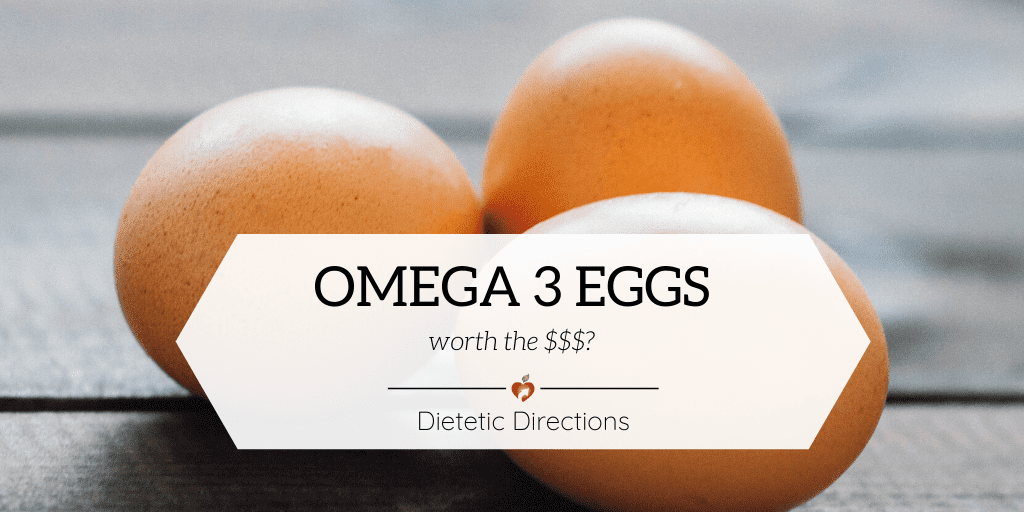
Omega 3 Eggs, Worth the $$$?
Do you find yourself strolling down the grocery aisle, leisurely perusing the ‘Omega 3 Eggs’ food label wondering if this type of ‘functional food’ is worth the extra money? It seems to be widespread knowledge that omega 3 fatty acids are good for us; however, are they truly beneficial in the form of eggs, or is this a mere marketing strategy?
What are omega 3's and their impact on health? Share on XWhat are Omega 3 Fatty Acids?
Omega 3 is a type of ‘essential fatty acid’ since our bodies require them for healthy functioning but we need to consume them in our diet in order to reap the health benefits. There are three types of omega 3 fatty acids: EPA, DHA and ALA. All three forms of omega 3 are important for functioning but research shows greater health benefits associated with the DHA and EPA found in fatty fish opposed to the ALA.
DHA (docosahexaenoic acid) – Found in fatty fish (i.e., salmon, herring, mackerel, sardines) and algae
EPA (eicosapentaenoic acid) – Found in fatty fish (i.e., salmon, herring, mackerel, sardines) and algae
ALA (Alpha-linolenic acid) – Found in plants (i.e., flaxseed, canola oil, chia seeds, hemp seeds, soybeans, walnuts)
NOTE: Our bodies can partially convert ALA fatty acid into the “heart healthy” EPA and DHA form.
Health Benefits of Omega 3 Include:
- Protection against heart disease and stroke
- Building healthy brain cells
- Possible role in cancer prevention
- Role in lowering blood pressure
- Linked to improving depression
- Linked to improving rheumatoid arthritis
How are Omega 3 Eggs Made?
Now that you are well-versed on the three different forms of omega 3’s and the associated health benefits, we will explore how farmers produce omega 3 eggs! The answer is simply in changing the hen’s feed to include 10-20% flax seed (ALA fatty acid). When the ALA is digested, some is partially converted over to the DHA form. It is important to note that the omega 3 fatty acids are found only in the yolks! See my previous blog post if you wonder about skipping the yolk.
Omega 3’s in Eggs vs. Salmon:
One omega 3 egg contains 75-250mg of DHA.
One salmon serving (6 oz) contains 2,000-3,000mg DHA and EPA
Bottom Line:
Consuming fatty fish for omega 3’s is the best way to achieve your heart healthy DHA and EPA fatty acids. However, if you are not a fan of fish or simply not getting enough omega 3’s in your diet, omega 3 eggs might just be worth the money for you. If you are looking for more ALA fatty acids, add 2 Tbsp ground flax seed or chia seeds to your hot cereal, try adding ¼ cup walnuts to your lunch or try adding canola oil to your salad for dressing! Speak with a Registered Dietitian if you are wondering how much omega 3’s you need in your diet.




